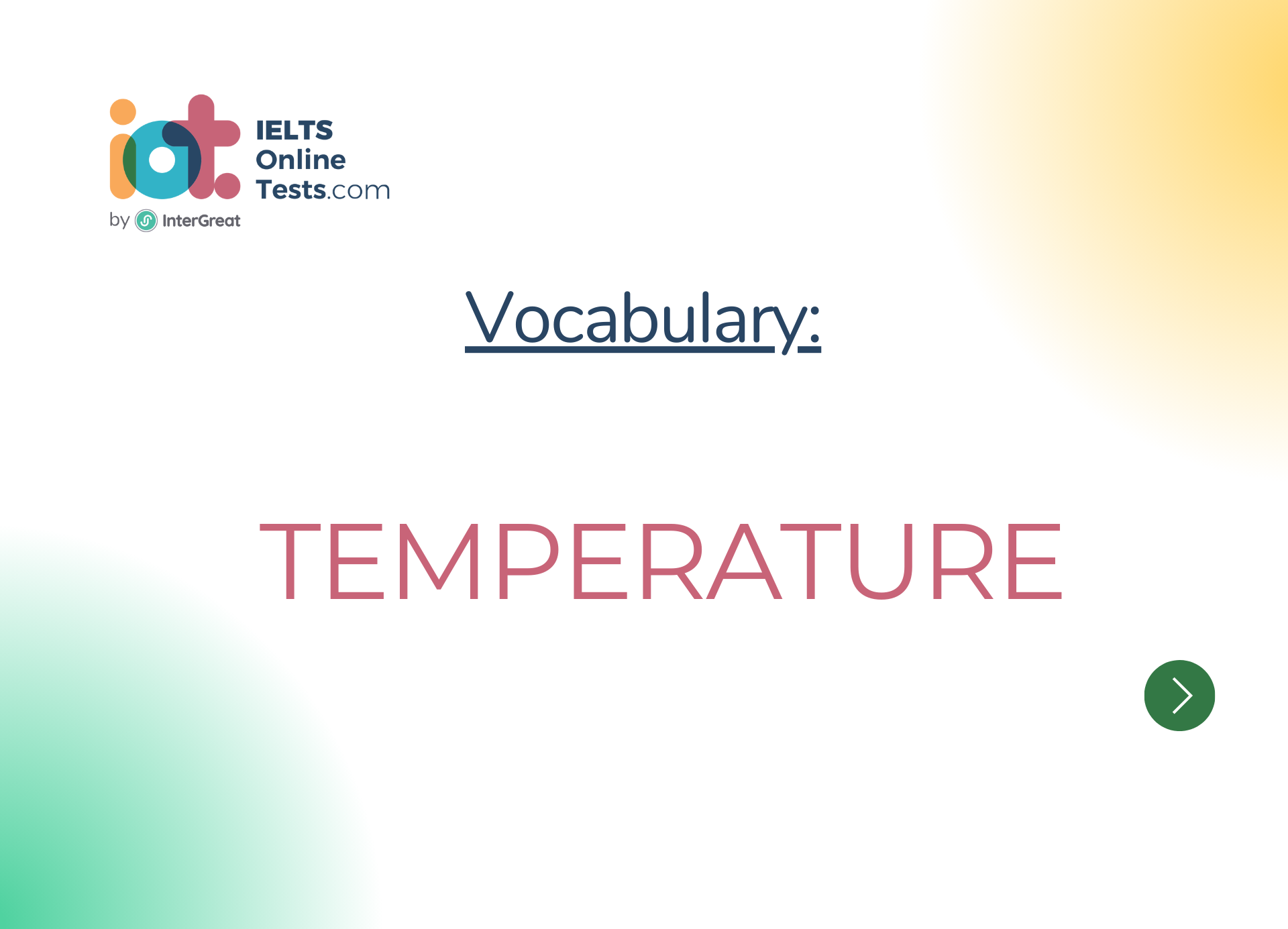
Temperature
Here's a lesson on vocabulary related to "Temperature" for the IELTS band score 3.0-4.5:
I. Temperature Range:
Hot: Having a high temperature.
Warm: Having a moderate or comfortable temperature.
Mild: Moderately warm, not too hot or cold.
Cool: Moderately low in temperature.
Cold: Having a low temperature.
Freezing: Extremely cold, below the freezing point.
II. Temperature Descriptors:
Boiling: At or near the boiling point of water (100 degrees Celsius or 212 degrees Fahrenheit).
Scorching: Extremely hot or burning.
Sweltering: Uncomfortably hot and humid.
Pleasant: Agreeably mild and enjoyable.
Chilly: Moderately cold, but not freezing.
Frigid: Extremely cold, icy, and uncomfortable.
III. Measuring Temperature:
Celsius: The temperature scale commonly used in most countries (0 degrees Celsius is the freezing point of water and 100 degrees Celsius is the boiling point).
Fahrenheit: The temperature scale commonly used in the United States (32 degrees Fahrenheit is the freezing point of water and 212 degrees Fahrenheit is the boiling point).
Thermometer: An instrument used to measure temperature.
Degree: A unit of measurement for temperature.
IV. Weather Conditions:
Heatwave: A prolonged period of excessively hot weather.
Cold snap: A sudden, brief period of cold weather.
Temperature drop: A decrease in temperature.
Temperature rise: An increase in temperature.
Fluctuating temperatures: Frequent changes in temperature.
Seasonal temperature variations: Differences in temperature between seasons.
V. Expressing Temperature:
It's boiling/hot/warm/mild/cool/cold/freezing outside.
The temperature is rising/dropping/falling.
It's a scorching hot day.
The weather is pleasantly warm.
It's chilly in the morning but warms up later.
Remember to practice using these vocabulary words in sentences and conversations to improve your understanding and fluency in English.




